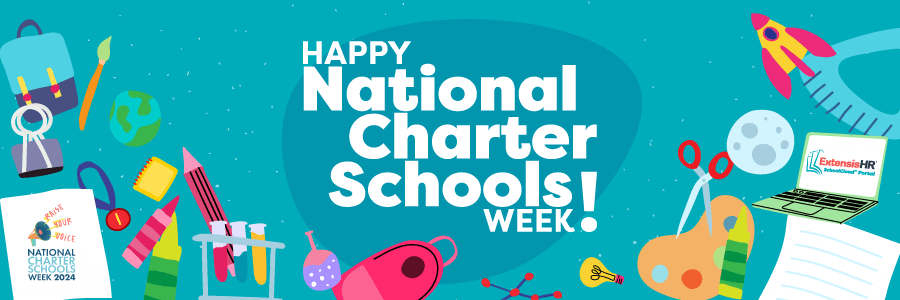The Benefits of a PEO for Small Businesses

Quick look: Small business leaders have a lot on their plate. Growth is mission-critical, and finding the time to navigate the complexities involved with human resources (HR) can be tough. A professional employer organization (PEO) can help by offering comprehensive HR, employee benefits, payroll, and risk and compliance solutions. However, not all PEOs are equal, and small businesses should look for specific criteria when choosing a PEO as their HR outsourcing partner.
Running a small business can be challenging. Resources are tight, growth requires hard work, and leadership can get overwhelmed if they don’t have the help they need. If this sounds familiar, outsourcing supporting functions so you can focus more on higher-value activities could be precisely what your organization needs.
HR is one of these functions, but not every HR outsourcing option is the same. Professional employer organizations (PEOs) are outsourcing firms that allow small- and medium-sized businesses (SMBs) to offer comprehensive services for HR, employee benefits, payroll, risk and compliance, and more. PEOs feature a co-employment situation, in which the PEO assumes certain employer rights, responsibilities, and risks while the client retains control over operational decisions and hiring and dismissing staff.
Other HR-related outsourcing options include:
- Human resources outsourcing (HRO): A highly configurable HR solution that allows larger companies to utilize a PEO’s expertise but remain on their current group health insurance plan and does not include a co-employment relationship.
- Administration services organization (ASO): ASOs provide similar HR management duties to PEOs without establishing a co-employment relationship or sponsoring employee benefits or workers’ compensation coverage.
- Payroll services provider: Primarily process payroll, manage associated tax reporting, and may include less comprehensive ancillary services.
- Human resources information system (HRIS): A software platform used to collect and store employee data that features various HR management functions for recruiting, performance management, time and labor, and more. An HRIS enables self-sufficiency but should not be a standalone HR management solution.
- Employee leasing company: Supplies new workers (contractors) to a business, typically temporarily, to assist with a specific project.
If you own or manage a small business, working with a PEO could be the most beneficial option for your organization. During National Small Business Month, it’s particularly relevant to consider a PEO, as they provide essential services that can streamline operations and foster growth. Small businesses benefit immensely from PEOs, gaining access to a wealth of resources that empower them to compete on a larger scale while focusing on their core missions. Here’s a closer look at how.
Why use a PEO?
Research has proven that partnering with a PEO can deliver a strong return on investment (ROI) for small businesses. Firstly, they support growth—small companies that use a PEO grow 7-9% faster than competitors that don’t. Also, a PEO can help organizations better manage business risk. According to a study from the National Association of Professional Employer Organizations (NAPEO), employers partnering with a PEO are 50% less likely to go out of business.
Working with a PEO can also reduce HR-related costs and improve business performance. In fact, using a PEO reduces HR admin spending by 27% on average and can reduce employee turnover by 10-14%. A PEO partnership provides access to Fortune 500-level benefit plans, modern technology solutions, and higher-quality HR practices, which, in turn, aid in recruiting and retaining top talent.
The benefits of using a PEO
PEOs deliver cost-effective, outsourced services for HR, payroll, benefits, risk management, and more. Here are the main areas where a PEO can support your small business.
More affordable access to top-tier employee benefits
Smaller organizations may find offering competitive employee benefits challenging. Their size can hinder them from providing plans that rival larger competitors. And even if they do, it often comes with a hefty price. However, a PEO partnership can solve this problem.
PEOs have multiple clients, meaning they typically serve many employees. This gives them group bargaining power to access robust benefits at competitive prices for their clients using economies of scale. If an organization employs less than 150 employees, a PEO may be the best way to access Fortune 500-level benefits for its workforce to improve attraction and retention.
Technology is another aspect of employee benefits that a PEO can help with. While applications have become more accessible, high-end technology is still costly and mostly used by large businesses. However, some PEOs can provide, implement, and maintain cutting-edge benefits systems for their small business clients.
Accurate and compliant payroll management
While paying your workforce sounds simple, there is a wide array of ever-changing federal, state, and local laws and regulations to keep in mind. Also, the stakes are high since payroll mistakes could cause employee dissatisfaction, reputational damage, and fines.
Offloading these responsibilities to a PEO can enable business leaders to focus more on business strategy and put the right technology and processes in place to track required data, run reports, and manage payroll. PEOs can also process payroll on clients’ behalf and file all necessary payroll taxes.
In addition to achieving time efficiencies, these services can provide peace of mind that you will stay compliant and avoid fines.
Worry-free risk and compliance
HR comes with heavy compliance requirements, which can be cumbersome for small businesses that cannot employ large HR departments. Staying current with these mandates, updating policies and practices accordingly, and managing the associated risks can be stressful, time-consuming, and effort-intensive.
Partnering with a PEO means business leaders can reduce the time they spend focused on maintaining HR compliance. From workers’ compensation coverage to employee relations, a PEO has the expertise to support you. Not only can a PEO’s risk and compliance experts provide compliance-related advice, but they can also manage and resolve cases on your behalf.
Effective employment relations
Employment relations is a broad field requiring strong expertise in managing challenging people cases. Small employers have a lot to deal with, from grievances when an employee feels they have been treated unfairly to disciplinaries when someone violated company rules.
A PEO partner can support you in creating and maintaining HR policies and processes that align with legal requirements and best practices. They can also provide expertise on a case-by-case basis so your HR team can make informed decisions.
Enhanced learning and development initiatives
Learning and development (L&D) has become increasingly important as top talent values career growth. To meet this demand, L&D solutions have also become more sophisticated, using technology to provide a better learning experience. However, with limited resources, some small businesses may find it difficult to access quality L&D programs.
Working with a PEO can help smaller organizations take advantage of the latest L&D solutions, like on-demand immersive learning platforms. These tools can increase employee satisfaction and improve the capability of your workforce, which can, in turn, further increase performance.
Effective recruitment
Talent acquisition can make or break a business. People are an organization’s most important asset, but finding, attracting, and hiring the right talent is not an easy feat. Small businesses may need to hire aggressively during growth phases, which can strain even the best in-house recruitment team.
While each PEO has its own scope of services, only some provide comprehensive recruitment solutions. Even rarer is a PEO that offers it as a complimentary service, like ExtensisHR. A PEO’s recruiting professionals can help create a recruitment strategy aligned with your business goals and provide the support you need to source and attract top. They can also assist throughout the hiring process—from creating job advertisements to providing offer letter consultations. And to round it out, a PEO can help you onboard your new hires and get them ready to hit the ground running.
Advanced HR technology
There are many reasons to utilize HR tech, from automating repetitive tasks so employees can focus on more meaningful work to reporting on relevant data to enable informed decisions.
However, small businesses may not have the time or money available to build a sophisticated HR technology function that maximizes productivity, streamlines business efficiencies, and improves employee engagement.
A PEO can help by providing access to technology solutions, platforms, and mobile applications that:
- Streamline tasks like onboarding, open enrollment, and recruiting
- Increase employee engagement through self-service options
- Reduce the potential for compliance errors
- Improve collaboration throughout a distributed workforce
- Enhance learning, development, and training capabilities
- Allow for more informed decisions by using data analytics and reporting
Focused HR strategy
An HR strategy is a crucial element of overall business strategy. Ideally, it should be linked to a company’s short-term goals and long-term aspirations, enabling the organization to build and retain a workforce that will help it succeed. However, designing and maintaining an HR roadmap can be tricky, especially when business leaders have many other departments to consider.
A PEO partners with business leaders and HR teams to help translate their high-level business goals into relevant HR initiatives. Then, they can help refine the strategy over time and evaluate success. During this process, companies maintain control over the decision-making—a PEO is only there to offer guidance as needed.
How to select a PEO
PEOs can help small businesses grow, enhance operations, and reach their goals. However, hundreds of PEOs are on the market, and not all of them hold the same qualifications. Here are some criteria to consider when evaluating a PEO.
Ample accreditation
While PEO accreditations are not a legal requirement, seeking service from accredited providers can help SMBs secure high-quality standards. Specifically, it is best practice to select a PEO accredited by the Employer Services Assurance Corporation (ESAC) and Certification Institute and designated as a Certified Professional Employer Organization (CPEO) by the IRS. Additional qualifications, like SOC 1 Type II Certification and company culture awards, are also things to look for.
Similar clients and industry experience
It’s beneficial to partner with a PEO specializing in working with smaller organizations within your industry. Small businesses tend to have different needs and goals than larger ones, and hiring a PEO that has experience with similar companies can help.
While some HR elements can be industry-agnostic, this is not always the case. A partner who understands your business and industry will likely be more helpful than one without relevant experience. One size doesn’t fit all regarding human resources, and it’s important to factor that into your search.
Experience in multiple geographic regions
While most best practices can be applied across various regions, sometimes there are crucial local nuances. For example, compliance issues depend on local laws and regulations, which can vary from state to state or even city to city. Therefore, it’s recommended to look for a partner who has experience working with businesses that operate in your core regions.
Consistent customer service
When you have an HR question or concern, a PEO is only as helpful as the answers and support it can provide. It’s critical to review each potential PEO partner’s customer service approach. Do they have in-house experts, or will you be routed to an automated ticketing system or call center? How quickly are phone calls answered, and what is their same-day case resolution rate?
Proven track record
The benefits of a PEO can be vast, but business leaders should ensure the PEO they select has a strong track record of success. To do so, they should request client testimonials, case studies, and reviews to minimize risk and ensure an effective partnership.
ExtensisHR: a PEO dedicated to small business’s success
For over 25 years, ExtensisHR, a nationally recognized PEO, has been dedicated to helping small businesses grow confidently. By providing comprehensive human resources, employee benefits, recruiting, payroll, and risk and compliance services, we enable business leaders to focus on the tasks that will propel their organizations toward their goals. How can your company improve by outsourcing its HR nuances to a PEO like ExtensisHR?
To learn more about how PEOs can help small businesses thrive, download our free eBook, “Accelerating Growth: How HR Outsourcing Can Propel Fast-Growing Businesses,” or contact our expert HR team today.



